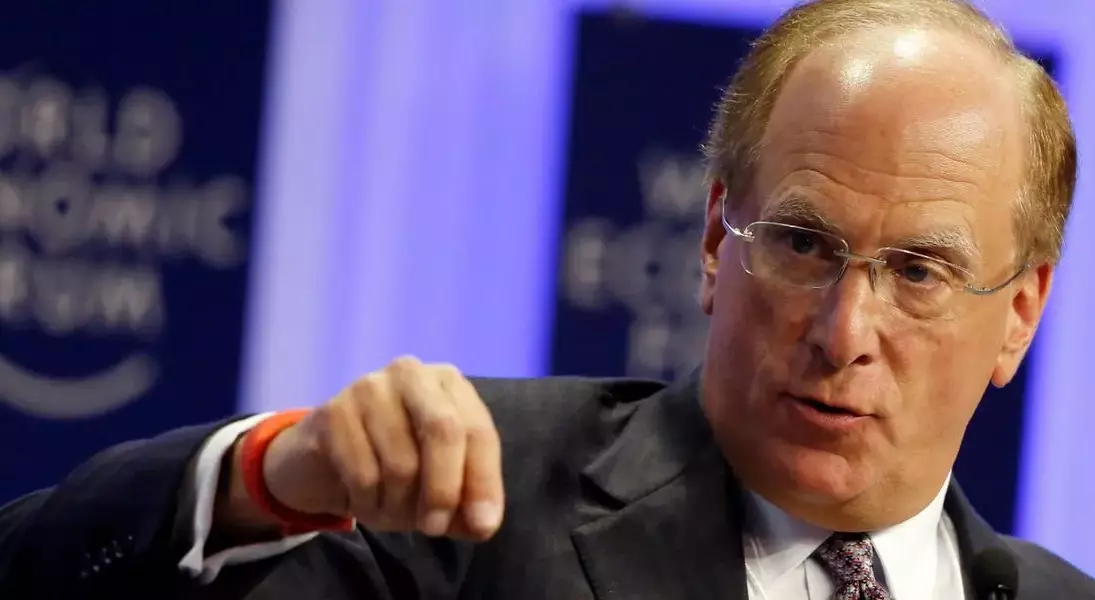In a recent interview, Larry Fink, CEO of BlackRock, the world’s largest asset manager, has sounded the alarm on potential turbulence in the bond market. He warns that rising inflation could push the 10-year Treasury yield to unprecedented levels, possibly as high as 5.5%, leading to significant repercussions for both the bond and stock markets. This scenario, while not Fink's base case, underscores the need for investors to prepare for volatility driven by economic shifts and policy changes.
The Coming Storm: How Rising Inflation Could Reshape Markets
Assessing the Impact of Inflationary Pressures
The specter of higher inflation looms large over the financial landscape, with far-reaching implications for investment strategies. According to Larry Fink, the potential for the 10-year Treasury yield to surge past 5%—and even reach 5.5%—is a real concern. Such a spike would mark the highest level in nearly two and a half decades, last seen in 2000. The driving force behind this projection is the anticipated rise in inflation, which could erode investor confidence in government debt.Inflationary pressures are expected to intensify due to various factors, including new policies from the administration. These policies could unlock vast amounts of private capital, spurring economic growth but also introducing new risks. Fink believes that these dynamics are not yet fully priced into the markets, setting the stage for a potentially disruptive scenario. As inflation rises, the demand for Treasurys could weaken, leading to a sell-off in the bond market. This, in turn, could have a cascading effect on equities, forcing a re-evaluation of asset valuations.Understanding the Ripple Effect on Equities
The bond market and stock market are intrinsically linked, and a sharp rise in Treasury yields could trigger a significant correction in equities. If yields were to climb to 5.5%, it could catch many investors off guard, especially those who have not factored in the possibility of higher inflation. Fink cautions that such an event could lead to substantial losses in the stock market, creating a challenging environment for investors.The relationship between bond yields and stock prices is complex but undeniable. Higher yields often signal tighter monetary policy, which can dampen corporate earnings and investor sentiment. In this context, a jump in yields could force companies to reassess their borrowing costs and capital expenditures. For investors, this could mean a reassessment of risk tolerance and portfolio allocations. Fink emphasizes that while a 5.5% yield is not his central forecast, its occurrence could have a "very negative impact" on equities, necessitating careful planning and risk management.Navigating Policy Shifts and Economic Uncertainty
Economic policies play a crucial role in shaping market conditions, and recent shifts in government strategy could exacerbate inflationary pressures. Fink points to the potential for new policies to unleash significant economic growth, but also warns of the unintended consequences. Policies aimed at stimulating the economy could inadvertently fuel inflation, leading to higher interest rates and tighter monetary policy.Historically, bond markets have been highly sensitive to changes in trade policy, fiscal measures, and other economic indicators. For instance, concerns about aggressive trade policies have previously caused bond yields to spike. Similarly, the national debt has become a growing concern for investors, with some predicting that bond vigilantes could take action to pressure the government into greater fiscal discipline. With the federal debt now standing at a record $36.2 trillion, the conversation around managing this debt is becoming increasingly urgent.Preparing for a New Era of Market Dynamics
As the financial landscape continues to evolve, investors must remain vigilant and adaptable. Fink’s predictions highlight the importance of preparing for a range of possible outcomes, particularly in light of rising inflation and shifting economic policies. While a 5.5% yield on the 10-year Treasury may not be the most likely scenario, it serves as a reminder that markets can be unpredictable.Investors should consider diversifying their portfolios and exploring alternative strategies to mitigate risk. In an era of heightened uncertainty, staying informed and proactive is key. Fink’s insights provide valuable guidance for navigating the complexities of today’s markets, ensuring that investors are well-prepared for whatever challenges may arise.
